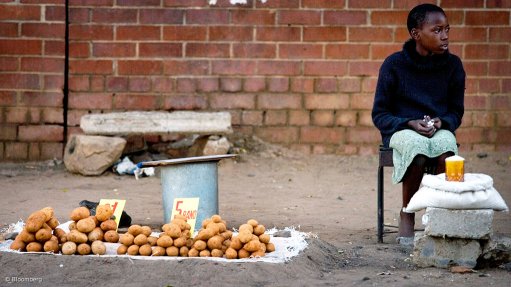
Photo by: Bloomberg
Swaziland should brace itself for further economic shocks, with European Union (EU) sanctions looming and the International Monetary Fund (IMF) saying the country should fix its policy framework amid high unemployment, mounting poverty and calls for fiscal consolidation.
The IMF sent a mission to the country to review its economic performance and prospects. The team, lead by Jiro Honda, said at the conclusion of its mission on Thursday that although the economy has continued to improve after the 2011 fiscal crisis, it grew at a slower pace in 2015.
“After the fiscal crisis, growth rebounded, partly supported by manufacturing, construction and the wholesale and retail sectors, while Swaziland’s significant development challenges continue, with high unemployment and poverty,” the IMF said.
The inflation rate in Swaziland stood at 4.8% in August 2015. However, major threats for the economy include trade restrictions that have already been implemented by the US and looming EU sanctions, which could affect the country’s sugar exports.
“Swaziland’s economy is faced with new challenges. Specifically the recent weakening of the regional economic outlook would have adverse impacts on Swaziland through trade and financial channels,” Honda said.
A further decline in revenues in the South African Customs Union (Sacu) has also been projected in the next few years. This, according to the IMF, raises “concerns for fiscal and external” sustainability in the Swazi economy.
As a result of this, Swaziland needs to strengthen its resilience to shocks in preparation for the expected Sacu revenue fall and to achieve higher and inclusive growth and meet social and development needs. King Mswati III, the country's absolute monarch, is accused of repression and rights abuses by Western countries. The country has run surpluses in the past two years, with the fiscal balance turning into a deficit in the 2014 and 2015 period. By the end of August this year, international reserves stood at 3½ months of the country’s imports.
A tight fiscal policy stance would help Swaziland maintain sufficient international reserve buffers and maintain modest debt distress. The IMF advised that the government enhance efforts for public financial (and investment) management reforms and strengthen domestic revenue collection.
“The mission encourages the authorities to step up efforts to raise the country’s potential for inclusive growth in order to address social and economic challenges. The mission highlights the importance of fast-tracking policy efforts in multiple areas to promote export diversification (through private sector development), enhance access to financing, and improve the business climate,” the UN said.